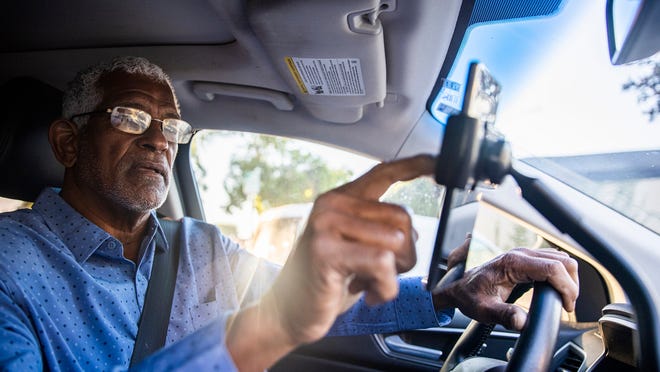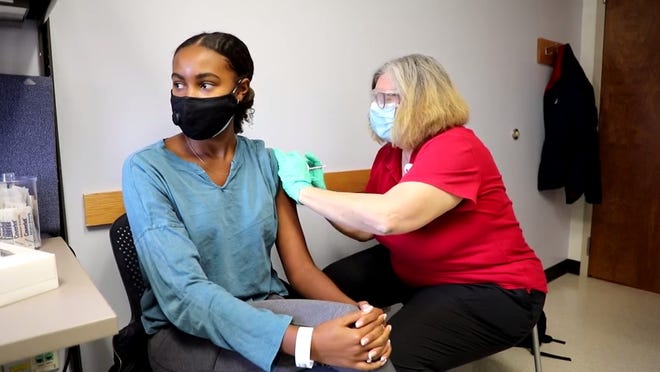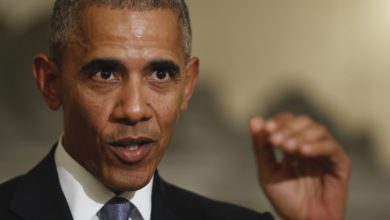
- Robinhood says it'll match 1% of IRA contributions on its platform.
- Nearly half of U.S. workers don't have access to a company-sponsored retirement savings plan.
- Robinhood says about a half million people are already on its waitlist to open an IRA account.
It’s no secret Americans struggle to save for retirement, which is why online brokerage Robinhood’s offering people an incentive to do it.
Robinhood launched this week a 1% match to users who save money in an individual retirement account (IRA) on its platform.
So, for each dollar users contribute from any linked external bank account to their retirement fund on Robinhood, they’ll instantly get a 1% match from the platform. Customers can get on the waitlist now to sign up for the program.
Typically, employers -- not brokerages – match their employee’s contributions in a company-sponsored 401(k) retirement plan. Matches are often seen as “free money” where people don’t have to do anything, but save for themselves, to get. But nearly half of U.S. workers aren’t even covered by a retirement plan at work, much less have access to a company match, according to a study earlier this year by economist John Sabelhaus of the Wharton School of the University of Pennsylvania.
“In the current economy – the traditional components of retirement savings in the U.S. – a corporate pension, supplemental savings in a 401(k) and Social Security– don’t work for everyone, including many in the next generation of (gig) workers,” said Robinhood chief brokerage officer Steve Quirk.
Who can benefit from this offer?
Everyone, but especially the growing market of people who are self-employed, gig workers, temporary workers, or at small businesses that typically don’t or can’t offer savings benefits.
About 57 million Americans took freelance work in 2019, the U.S. Chamber of Commerce said. During the COVID-19 pandemic and this year's inflation surge, even more workers joined the gig economy, as those who lost their full-time jobs or needed extra cash began freelancing to make ends meet. Most of them gained flexible hours but aren’t eligible for employment benefits like health insurance and retirement plans.
“We’re providing a path to retirement savings for those who don’t have access to traditional retirement accounts or corporate matching programs or are looking to augment their workplace retirement savings,” Quirk said.
Nearly half a million people are already on the wait list for an account the day after launch, Robinhood says.

What’s an IRA?
It's a retirement plan opened by individuals through a bank or brokerage; whereas 401(k) retirement plans are offered by employers.
Robinhood users can choose a traditional IRA or a Roth IRA. Both offer tax advantages, with the difference being when you pay taxes.
Waiting to save:45% of young workers say they're waiting until 'things return to normal' to save for retirement
Saving into year-end:Tax moves you should make before the end of 2022 that could save you money
If you use a traditional IRA, you use pre-tax money. That means you can deduct qualified contributions from your taxes now and pay taxes on the money when it’s withdrawn for retirement.
A Roth IRA allows you to contribute after-tax money. That means you pay taxes on your contributions now but get tax-free withdrawals later at retirement.
Note: early withdrawals are subject to IRS penalties and taxes so check the IRS website for rules surrounding retirement funds.
Separately, if retirement funds are withdrawn before five years from Robinhood IRAs, Robinhood could charge you an Early IRA Match Removal Fee equal to the match amount earned if your remaining IRA balance is lower than your contribution amount that earned the match.
Are there contribution limits?
Yes. Each year the IRS sets a maximum amount you can contribute to all your IRAs, including those held outside Robinhood. Matches are not counted toward your annual contribution limit.
For 2022, the contribution limit is $6,000 for people under age 50, and $7,000 for those 50 years and over.
In 2023, those limits will increase to $6,500 and $7,500, respectively.
Reaching limits:IRS raises 2023 retirement savings cap, but few even hit it. Here's what you can do about it.
Congress holds a key:Vote on SECURE Act 2.0 could help you save for retirement while paying off student debt
How much “free money” can I get from my contributions?
Robinhood will match 1% of your contributions up to the IRS limit.
If you contribute the maximum $6,000 for people under 50, you can earn up to $60 extra from Robinhood. For people 50 and over, saving the full $7,000 means they can earn up to $70 more.
Even though 1% may not sound like a lot, it can add up quickly over time due to compound growth. Compound growth means you earn returns on both your original investment and on returns you received previously.
Assume you earn the extra $60 each year for your contributions and an annualized rate of return of 10% for that match money, you can gain an extra $26,000 over 40 years for that 1% match, according to Robinhood.
Building wealth:The real recipe for a millionaire retirement: Savings, returns and time – that's all
Start early:Most older Americans would tell their younger selves to start saving for retirement sooner
What can I invest my retirement money in at Robinhood?
You can invest in stocks, exchange traded funds (ETFs), and soon you'll be able to trade options in your IRA, if eligible.
Though most of Robinhood’s clientele is young (the average age of its 23 million users is 32) and self-directed investors, the brokerage firm can also recommend a portfolio, or group, of investments for you.
Each recommended portfolio includes 5 to 8 ETFs that are chosen based on your answers to questions Robinhood enters into an algorithm that matches you to investments that make sense for you.
And in Robinhood style, all your investments are commission-free.
Medora Lee is a money, markets, and personal finance reporter at USA TODAY. You can reach her at [email protected] and subscribe to our free Daily Money newsletter for personal finance tips and business news every Monday through Friday morning.
Source link








